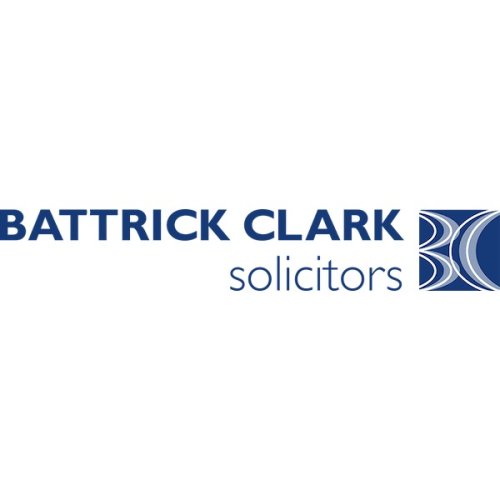Best Natural Resources Lawyers in Bristol
Share your needs with us, get contacted by law firms.
Free. Takes 2 min.
List of the best lawyers in Bristol, United Kingdom
About Natural Resources Law in Bristol, United Kingdom
Bristol, located in the southwest of England, is known for its vibrant culture and history. The natural resources sector in this region encompasses a wide range of areas including land use, water rights, mineral extraction, and renewable energy. Bristol's dynamic natural environment, inclusive of its waterways and rural landscapes, presents unique legal challenges and opportunities in managing these resources sustainably. Natural Resources Law in Bristol is therefore essential to regulate the exploitation, conservation, and management of these valuable resources to ensure their availability for future generations.
Why You May Need a Lawyer
There are several circumstances where individuals or businesses may require legal advice related to natural resources in Bristol:
- Land Use and Planning: If you're involved in developing land or changing land use, understanding local planning restrictions and environmental regulations is crucial.
- Water Rights: You may need legal assistance when dealing with water abstraction permits or disputes over water usage.
- Mineral Rights: Acquiring, transferring, or protecting rights to extract minerals often requires specialized legal guidance.
- Renewable Energy Projects: Navigating the grid connection agreements and environmental compliance for wind or solar energy projects often necessitates legal expertise.
- Conservation Compliance: Ensuring adherence to laws protecting natural habitats and species can be complex and requires professional legal interpretation.
Local Laws Overview
In Bristol, as part of the broader legislative framework in the UK, several key laws affect the management of natural resources:
- The Town and Country Planning Act 1990: Governs land use planning and may impact developments impacting natural resources.
- The Environment Act 1995: Establishes guidelines for the protection of natural resources and regulating emissions.
- The Water Resources Act 1991: Controls water abstraction and protection of water bodies, relevant to businesses and individuals with water use interests.
- Land Drainage Act 1991: Pertains to water-level management and flood defense, critical issues for areas around Bristol.
- The Wildlife and Countryside Act 1981: Protects native species and their habitats, essential for conservation work.
Frequently Asked Questions
1. What is a sustainable development in the context of Bristol's natural resources?
Sustainable development refers to a planning strategy that aims to balance resource use to meet current needs while conserving them for future generations. It has a particular focus on the holistic management of renewable resources, urban planning, and biodiversity conservation.
2. Are there incentives for renewable energy projects in Bristol?
Yes, there are various incentives such as financial subsidies and favorable planning treatment for projects that contribute to the reduction of carbon emissions through renewable energies.
3. How can I protect my mineral rights?
You can protect your mineral rights through proper legal documentation and agreements, ensuring compliance with local laws, and consulting with a natural resources lawyer to handle all related legal matters.
4. What permits are needed for water extraction in Bristol?
Water extraction usually requires obtaining licenses or permits from the Environment Agency, with specific conditions attached to the quantity and location of water abstraction.
5. How are land disputes typically resolved?
Land disputes are often resolved through negotiations, mediation, or litigation, depending on the nature of the dispute. A lawyer can provide counsel on the most effective strategy in your particular case.
6. What kinds of legal restrictions might apply to developing rural land?
Restrictions can include environmental conservation laws, zoning regulations, flood risk assessments, and historical preservation requirements.
7. Do local laws allow for fracking in Bristol?
The legality of fracking is subject to National Policy and primarily regulated by the Oil and Gas Authority, along with environmental considerations by local authorities, making it imperative to seek legal guidance.
8. How is waste management regulated in Bristol?
The regulation of waste management is primarily governed by the Environmental Protection Act 1990, involving permits and codes of practice managed by the local council and relevant agencies.
9. Can I install solar panels on a listed building?
Installing solar panels on a listed building usually requires listed building consent and planning permission to ensure that historical character and architectural interest are preserved.
10. What are the penalties for non-compliance with environmental laws?
Penalties for non-compliance can vary widely, ranging from fines and injunctions to criminal charges, depending on the severity and nature of the violation.
Additional Resources
Individuals seeking more information or legal assistance related to natural resources can consult the following resources:
- Environment Agency: Manages water resources and environmental protection.
- Bristol City Council: Provides guidance on local development and planning laws.
- The Conservation Volunteers: Offers practical advice on conserving local environments.
- Natural England: Focuses on conservation and protection of the countryside and natural habitats.
Next Steps
If you require legal assistance in matters related to natural resources in Bristol, consider the following steps:
- Identify Your Needs: Clearly define the specific legal issue or project requiring guidance.
- Research Potential Law Firms: Look for firms with expertise in natural resources and environmental law in the Bristol area.
- Consult with a Specialist Lawyer: Schedule consultations to discuss your issues and find a lawyer who specializes in your particular area of interest.
- Gather Relevant Documentation: Compile all relevant documents and information related to your case or project to streamline the legal consultation process.
- Explore Mediation Services: If the issue involves a dispute, consider alternative dispute resolution mechanisms like mediation as a first step.
Lawzana helps you find the best lawyers and law firms in Bristol through a curated and pre-screened list of qualified legal professionals. Our platform offers rankings and detailed profiles of attorneys and law firms, allowing you to compare based on practice areas, including Natural Resources, experience, and client feedback.
Each profile includes a description of the firm's areas of practice, client reviews, team members and partners, year of establishment, spoken languages, office locations, contact information, social media presence, and any published articles or resources. Most firms on our platform speak English and are experienced in both local and international legal matters.
Get a quote from top-rated law firms in Bristol, United Kingdom — quickly, securely, and without unnecessary hassle.
Disclaimer:
The information provided on this page is for general informational purposes only and does not constitute legal advice. While we strive to ensure the accuracy and relevance of the content, legal information may change over time, and interpretations of the law can vary. You should always consult with a qualified legal professional for advice specific to your situation.
We disclaim all liability for actions taken or not taken based on the content of this page. If you believe any information is incorrect or outdated, please contact us, and we will review and update it where appropriate.













